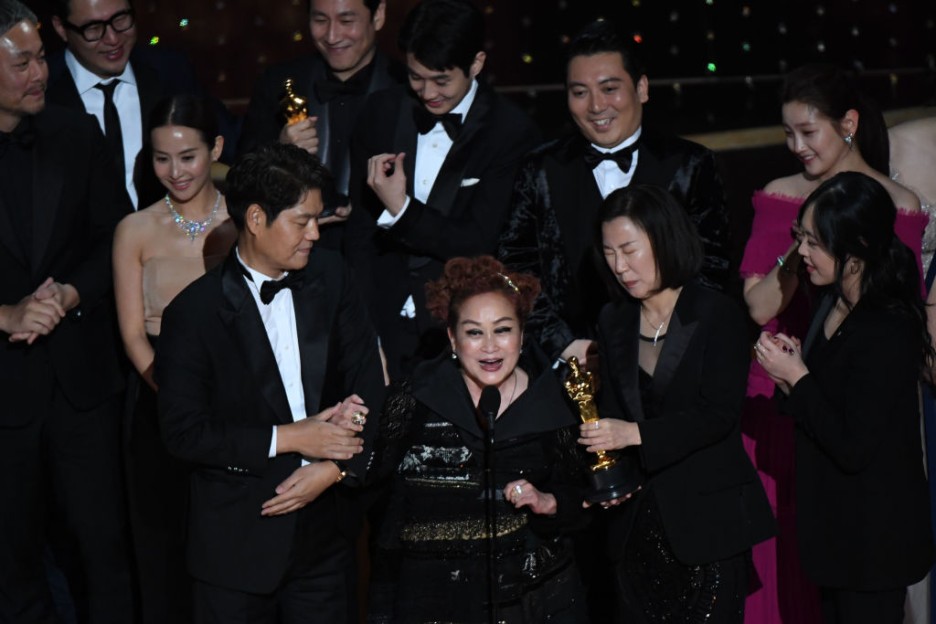'Drive My Car' Is the New 'Parasite?' Why This Narrative Is Ultimately Damaging to Japan's First-Ever Best Picture Oscar Nominee

What do Oscar-recognized films "Drive My Car" and "Parasite" have in common? Recently, the narrative surrounding Oscar-nominated "Drive My Car" has been that it's this year's "Parasite." However, how true is this comparison and why does it feel weird that this is the story being used to sell us the Oscar-winning potential of "Drive My Car?"
I have a theory.
What is "Drive My Car?"
Directed by up-and-coming director Ryusuke Hamaguchi, "Drive My Car" is a three-hour long intimate meditation on love and loss that's Japan's first-ever Best Picture nomination. Starring Hidetoshi Nishijima, Tōko Miura, and Masaki Okada, "Drive My Car" is based on a short story by Japanese author Haruki Murakami, who is globally-known for works such as "Norwegian Wood," "Kafka On the Shore," and "IQ84." This melding of the minds of two of Japan's premium storytellers has been described by Film Forum as "a head-on collision between an emerging filmmaker fascinated by the interior lives of women, and a famous author who...is not."
Surprising everyone who hasn't been paying attention to Asian cinema these past few years, "Drive My Car" has also been a huge critical darling. The film has earned Oscar nods in the Best Director, Best Adapted Screenplay, and Best International Feature Film categories after winning awards at the 2021 Cannes Film Festival and being widely discussed as one of the best films of 2021.
Comparison to "Parasite"
With "Drive My Car"'s nomination for Best Picture, the inevitable comparisons with Bong Joon-ho's 2019 South Korean masterpiece "Parasite" began. While both "Drive My Car" and "Parasite" are auteur-driven films from Asia that have garnered multiple Oscar nods, the two films couldn't be more different.
"Parasite" is an examination of the socioeconomic disparity in South Korean society done through a black comedy thriller with a now-iconic twist. While "Drive My Car" is decidedly not. With its slow-moving pace and subject matter about a theater director wrestling with the passing of his wife after learning that she had an affair, it's clear that audiences should expect a wildly different viewing experience.
"Parasite"'s highly relatable themes and tight storytelling is much more accessible, which may explain why "Drive My Car"'s required a very strategic rollout since it's tough to ask modern audiences to sit through a three-hour film on streaming platforms. So, trying to ask the same level of success and reception for both from general audiences and critics is tough.
I understand that most American audiences probably use this comparison to grapple with the idea that for the second time in two years there's yet another Best Picture contender from Asia. And, I'm sure that the comparison is meant as a hopeful wish for "Drive My Car"'s success in sweeping the upcoming Oscars race, airing on March 27, 2022, in much the same way that "Parasite" did.

However, when the films, filmmakers, and country's film traditions are so different, such comparisons just feel reductive. Seeing how Japan has been celebrating this breakthrough in Japanese filmmaking recognition, it feels somewhat regrettable that such a positive moment where the world should be discovering the gems of Japanese cinema is overshadowed by the triumph of a whole other country's film.
Hamaguchi Ryusuke's movie "Drive My Car" starring #NishijimaHidetoshi nominated on Best Picture and International Feature Film at 94th Academy Awards.
— ハズキ 🍀 (@cloverblossoms_) February 8, 2022
This is become the 1st Japanese film nominated in Best Picture.#ドライブ・マイ・カー #OscarNoms pic.twitter.com/3VZNm8nWvI
I would much rather let Hamaguchi's film have its moment in the sun, and I encourage you to do the same as we head into the Academy Awards.
For more entertainment news and commentary, check out Enstarz! We bring you the latest on your favorite celebrities, TV shows, and films.
© 2026 Enstarz.com All rights reserved. Do not reproduce without permission.






